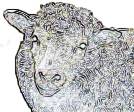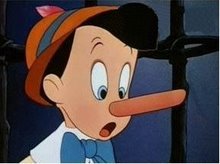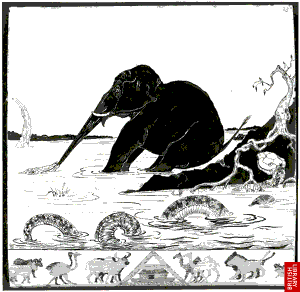
When a loggerhead shrike catches a lizard, the bird often impales it on a thorn or a spur of barbed wire and then leaves the carcass hanging, explains evolutionary biologist Edmund D. Brodie III of Indiana University in Bloomington. He and his colleagues compared the length of the horns on dangling remains of horned lizards with horn lengths of lizards still alive. The living lizards typically had slightly longer horns, the researchers report in the April 2 Science.
This lizard's multiple pairs of horns, facing backward and sideways from its skull, are "as hard and as sharp as you think they are," says Brodie. When a predator pounces to grab the lizard's body, the reptile rears back its head to stab the attacker.
The team found that, on average, the living lizards had longer horns than the dead ones. The difference was tiny—2 millimeters for one horn pair and 1 millimeter for another. Brodie points out that this difference represents 10 percent of the horn length.
That's enough for natural selection, he says. The team calculated that the horns' length, under the pressure of bird attacks, could change in as few as 21 generations. Brodie cautions that the research shows only a current selection pressure, not what might have driven earlier evolution.
Storyteller: Edmund D. Brodie III of Indiana University in Bloomington.
http://www.phschool.com/science/science_news/articles/long_horns_win.html
This lizard's multiple pairs of horns, facing backward and sideways from its skull, are "as hard and as sharp as you think they are," says Brodie. When a predator pounces to grab the lizard's body, the reptile rears back its head to stab the attacker.
The team found that, on average, the living lizards had longer horns than the dead ones. The difference was tiny—2 millimeters for one horn pair and 1 millimeter for another. Brodie points out that this difference represents 10 percent of the horn length.
That's enough for natural selection, he says. The team calculated that the horns' length, under the pressure of bird attacks, could change in as few as 21 generations. Brodie cautions that the research shows only a current selection pressure, not what might have driven earlier evolution.
Storyteller: Edmund D. Brodie III of Indiana University in Bloomington.
http://www.phschool.com/science/science_news/articles/long_horns_win.html
Story Research: http://creationsafaris.com







.jpg)























No comments:
Post a Comment